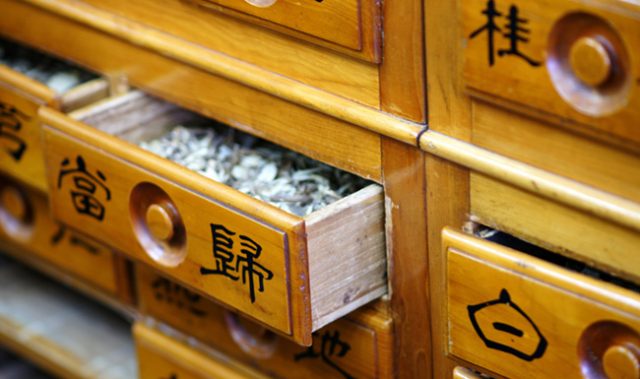
AsianScientist (Dec. 5, 2018) – A research group in China has identified an antimicrobial compound in Rhodomyrtus tomentosa, also known as the rose myrtle. They reported their findings in the Journal of Ethnopharmacology.
R. tomentosa is a medicinal and ornamental plant found in the hilly areas of Taiwan, Fujian, Guangdong, Guangxi and Lingnan region of China. Its sweet fruit is edible, and traditional Chinese medicine practitioners use its leaves in the treatment of infectious diseases and wound infections.
In the present study, scientists from the South China Botanical Garden of the Chinese Academy of Sciences extracted a natural compound called rhodomyrosone B from R. tomentosa and studied its activity against antibiotic-resistant bacteria.
They discovered that rhodomyrosone B exhibited strong antibacterial activity against Gram-positive pathogens, including methicillin-resistant Staphylococcus aureus, with a minimum inhibitory concentration (MIC) of 0.62–1.25 μg/mL. Against vancomycin-resistant Enterococcus faecalis, the MIC of rhodomyrosone B was 2.5 μg/mL.
Further experiments revealed that rhodomyrosone B exhibited significant antibacterial activity by perturbing bacterial membrane potential and increasing bacterial membrane permeability. The researchers also performed structure-activity relationship assessments of the compound, which involved replacing certain chemical groups and testing the resultant derivative for bactericidal activity. They managed to create synthetic versions of rhodomyrosone B which displayed four to five greater antimicrobial activity in vivo than the original compound.
The article can be found at: Zhao et al. (2018) Rhodomyrtosone B, a Membrane-targeting Anti-MRSA Natural Acylgphloroglucinol From Rhodomyrtus tomentosa.
———
Source: Chinese Academy of Sciences; Photo: Dinesh Valke/Wikimedia Commons/CC0.
Disclaimer: This article does not necessarily reflect the views of AsianScientist or its staff.












